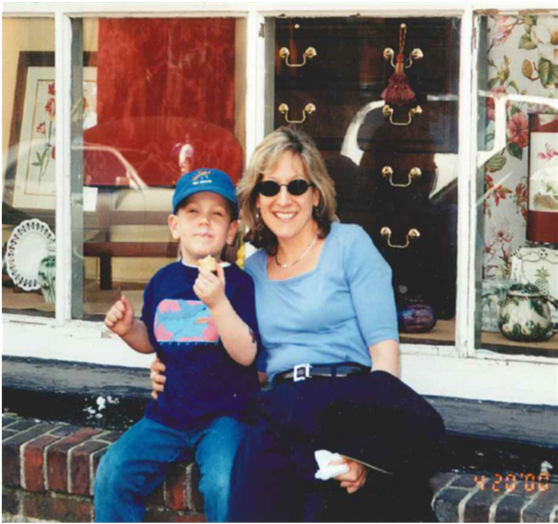Sense-Able Science Program Provides Fun and Learning for Kids on the Autism Spectrum

I remember so clearly trying to give my son Alex experiences other children receive on a regular basis and failing miserably time after time. Things like going to a movie, amusement park, museum, or even just shopping in a department store often ended in disruption, embarrassment, meltdowns, and tears.
Alex has Asperger’s Syndrome, an autism spectrum disorder (ASD) that’s considered to be on the “high functioning” end of the spectrum. He was diagnosed at 3 years old. He’s 19 now, in college, and I’m proud and happy to say that he’s really coming into his own, having matured immensely.
I asked for Alex’s approval before writing about him. He said he had no problem with it, reminding me that he’s been vocal with friends and others in his community. His feeling is that the more people know about ASD, the more accepting they will become.
For the parents of children with ASD, acceptance can be difficult to find when their children yell out, grab and touch inappropriately, have tantrums, run away from them, or flap their arms and make other repetitive movements. These reactions to stimuli are common for ASD kids and can make it difficult for these families to go out in public. The saddest part is that most people with ASD, like my son Alex, are inquisitive and intelligent, longing to see, hear, and feel life in all its forms.
According to the Autism Society, more than 3.5 million Americans live with ASD, and one in 68 births are affected. The prevalence of diagnosed autism increased 119 percent from 2000 to 2010, ranking it as the fastest-growing disability in the U.S.
A new program offered at the Museum of Science and Innovation (MiSci) in Schenectady – called Sense-Able Science – offers families a place to learn, explore, and have fun in a space where they are appropriately accommodated and accepted. The Schenectady ARC and the Autism Society of the Greater Capital Region are partners in the program, which operates one Sunday morning a month from 10 a.m. to noon. CDPHP provides corporate sponsorship funds to help support it.
Modeled after other museum programs such as at the Metropolitan Museum of Art in New York City and the Please Touch Museum in Philadelphia, Sense-Able Science offers an array of support designed to reduce the likelihood of sensory over-stimulation, while creating a caring and understanding environment that spares families from public embarrassment, judgment, and ridicule. A specially adapted map and a variety of “social stories” provide children and their families with easy-to-understand, illustrated, step-by-step descriptions on what they can expect at the museum. Lighting, sound, and temperature are also adjusted to meet the special needs of people with ASD, and ear plugs are available if needed.
A quiet area with bean bag chairs, coloring books, and other relaxing activities is available for children who get overstimulated or experience behavioral issues. Children and their caregivers are able to leave and return to the museum at will, something not typically offered at most museums during normal hours of operation.
“Families of children with ASD are desperate for programs tailored to their needs that will provide enjoyable and educational experiences,” said Mark Sheehan, director of new initiatives at Schenectady ARC. Sheehan was also involved with a program called Sense-Able Movies that provided families the opportunity to see weekly movies at a local theater while it was closed to the general public. Unfortunately, a sponsorship that provided funding was discontinued.
Janine Kruiswijk, executive director of the Autism Society of the Greater Capital Region, pointed out that besides offering a fun place where ASD families can find understanding and acceptance, Sense-Able Science gives kids hands-on experiences that could lead to an interest in careers in science and technology.
“Research shows that people with autism have the lowest rates of employment of all people with disabilities,” she said.
In fact, the Autism Society reported that 35 percent of young adults (age 19-23) with autism have not had a job or received postgraduate education after leaving high school. Concurrently, the Centers for Disease Control and Prevention states that almost half of children identified with ASD have average to above average intellectual ability, and many show particular interest in science, technology, and nature.
The program is gaining in popularity since starting in June, with about 20 families participating thus far. Many of those who completed surveys following their visits cited the quiet atmosphere that was accepting of their kids.
“Our boys loved playing and discerning,” noted one parent. “We really like the low-key atmosphere and how it was not crowded, too loud, or busy! Our boys were more relaxed and comfortable.”
As a mother who lived through years of frustration, fear, and sadness that her son wasn’t able to enjoy what so many parents and children take in stride (and for granted), it warms my heart to learn about Sense-Able Science and programs like it. Understanding, acceptance, and the right environment certainly go a long way in bringing about unfettered fun and learning for special kids.
 The Daily Dose
The Daily Dose
 Lisa Stratton
Lisa Stratton
Comments are closed.